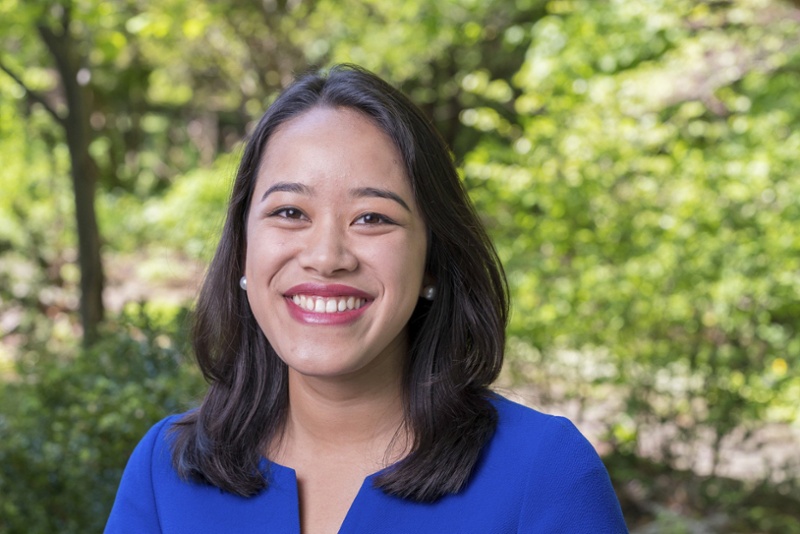Cornell's MPA Program Took Me to Kenya, Australia, and Greece — Here's Why

Ranissa Adityavarman graduated from the MPA Program in May of 2018 with a concentration in Government, Politics and Policy Studies. She is employed as a Foreign Service Officer at the U.S. Department of State. Here's what she had to say about her incredible experience at Cornell and how getting an MPA enabled her to travel to Kenya, Greece, Australia, and the UAE.
What made you choose Cornell over other programs you were considering?
As Rangel Fellow, I knew from the onset that I would be working in the U.S. Foreign Service. Graduate school then became less about landing a job and more about honing skills that would make me successful in a career in diplomacy. I did my undergraduate studies at Colgate University, where I majored in International Relations.
When it came time for graduate school, I wanted a program that would allow me to take more skills-based courses instead of just theoretical ones. I also wanted the flexibility to take courses in a variety of departments and fields. I wanted to go to graduate school where I could meet people with different professional interests than my own. I chose the MPA Program because it met all of these expectations. Finally, I knew Cornell University’s wider professional network would be valuable to me throughout my career, and the resources available to students – from travel grants to research assistantships– would also be helpful for my graduate experience.
What are your long-term career goals? How did the MPA Program help prepare you for these?
I hope to continue my career in diplomacy and foreign relations. The exposure I got from the world-class professors, speakers, and practitioners at Cornell helped to inform my view on a wider range of world issues than I might have never encountered otherwise. I hope to carry the lessons I learned in the field of foreign affairs more broadly.
What would you say are the top three reasons that the Cornell MPA was a good fit for you?
First, I wanted experience with subjects and issues outside of my normal discipline. Being able to take courses from across the university let me explore a wide range of subjects, from anthropology to architecture.
Second, the opportunities to work internationally through projects, classes, and conferences were the perfect fit for my interests and professional growth. During my two years at Cornell, I traveled to Kenya, Greece, Australia, and the UAE, just based on projects and conferences made possible through Cornell and the Rangel Fellowship.
Finally, the experiences I shared with my peers and the lessons I learned from the extremely varied and diverse backgrounds of the other fellows made my time at Cornell worthwhile.
Are there any particular “stand out” experiences at the Cornell MPA Program that made a lasting impact on you?
The SMART Program was one of the highlights of my time at Cornell. I traveled with three other students – with different disciplines – and our professor to Nandi Hills, Kenya to work with two smallholder cooperatives producing uji porridge mixes. Over the course of two weeks, we worked with farmers to develop market strategies and business skills through dialogue education. I had never had experience with agriculture before, let alone in eastern Africa, so the experience was both a foray into a new region of the world and area of study. The experience, although brief, was a very helpful and informative exchange that has continued to impact my views on cooperatives and developing markets.
How would you describe the sense of community you find at the Cornell MPA Program?
The intellectual diversity at the MPA Program was something I appreciated since the first day on campus. Having peers and friends from every corner of the world not only enhanced my graduate experience, but made it whole. The best kind of diplomacy comes from a place of understanding issues from other perspectives – talking through some of the world’s most pressing issues, among friends from countries those issues are affecting, has continued to shape my views, and I am entirely grateful for it.
Describe the role that the Capstone played in your educational experience at the MPA Program.
Our capstone project, researching mental health and psychosocial services for refugee populations in Greece, was a very important part of my education at Cornell. Along with three other students, we worked with our client, Humanity Crew, to study what practices and guidelines mental health practitioners and organizations in Greece were following. In January 2018, we had the opportunity to meet with several NGOs in Athens and visit refugee camps on the island of Lesvos. Seeing the on-the-ground work being done by actors there, in addition to hearing candid accounts of what work still needs to be done, has informed my perspective on larger issues of migration, refugees, and asylum seekers.
Is there anything else about the MPA program, about the opportunities here, or your particular experience that you would like to share?
I was fortunately selected to be one of six students representing the MPA Program and Cornell University at the World Government Summit in Dubai, UAE in February of 2018. Over the course of several days, we worked on a policy challenge with students from 16 other world-class universities. This was in addition to hearing speakers ranging from dignitaries to celebrities sharing wisdom on education, technology, governance, and more. I felt very fortunate to have had the opportunity to participate in this.
If you have questions about attending the Cornell MPA Program, we encourage you to request more information today!
Subscribe to our graduate education blog — Public Policy in Action — for tips and tools related to pursuing a Master of Public Administration degree!


